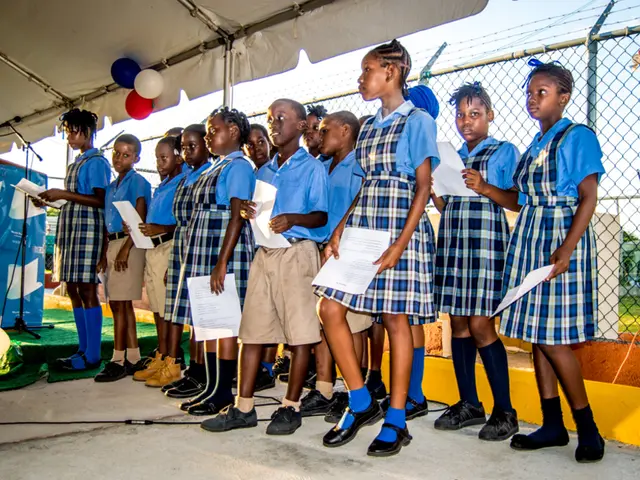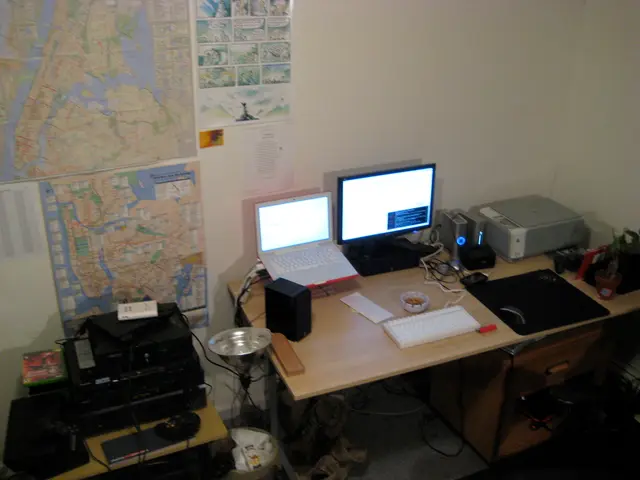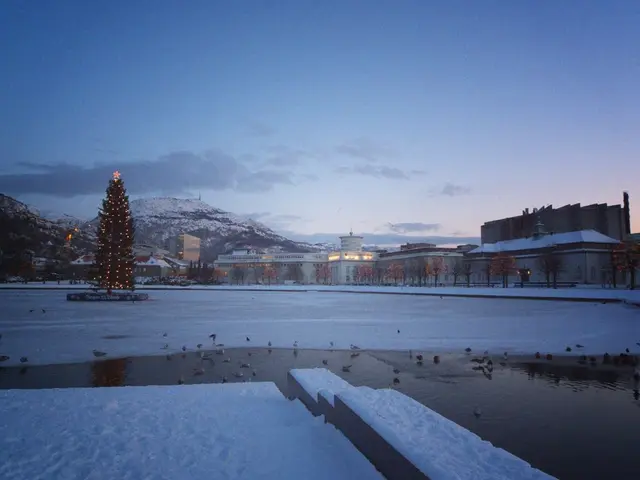Fiery conflagrations sweeping across eastern Newfoundland.
New Wildfire Ordeal engulfs Newfoundland and Labrador
In the small coastal towns along Conception Bay, nearly 45 kilometers northwest of St. John's, the morning sun brought a grim reality on Thursday. People were readying their exodus as wildfires raged on, decimating a dozen homes since Wednesday afternoon.
For Gerry Rogers, a resident of Small Point-Adam's Cove-Blackhead-Broad Cove on the island of Newfoundland, the sight was a bitter irony. "It's just so ironic, you know? Because we're right on the edge of the ocean," she shared, her voice quivering with emotion, as she paced in front of her house, packing her belongings to leave. Through the window, she could see the flames encroaching.
Small Point-Adam's Cove-Blackhead-Broad Cove, a residential community of 415, declared a state of emergency shortly after 10 p.m. local time Wednesday. By Thursday morning, Mrs. Rogers was already a witness to her neighbors leaving, and she too was getting ready to join them.
The smoke from the wildfire first caught her eye on Wednesday afternoon as she was driving home from Carbonear, a larger municipality about four kilometers east of Small Point-Adam's Cove-Blackhead-Broad Cove. The fire spread rapidly, she said, exacerbated by two years of drought and no rain.
Air tankers fought the flames all afternoon and into the evening, but they stopped at nightfall. Residents from the neighboring communities of Adam's Cove and Western Bay were ordered to evacuate the day before.
Thursday morning, the air tankers were delayed due to fog but resumed operations by 10:30 a.m. Despite their exhaustion, our firefighters are working tirelessly, Mrs. Rogers noted. Their tanks have to refill from nearby ponds before they can return to the fire, given the lack of fire hydrants in the area.
Authorities have set up emergency centers for those displaced due to the flames, though they yet offer no public statement as of Thursday morning. It was previously reported that Conception Bay was northeast of St. John's; however, it is actually northwest.
According to additional data, the wildfires in 2025 have been primarily driven by dry conditions that created a high fire hazard index, leading to an early start of the forest fire season. At least four active wildfires are currently being monitored across the province. Significant fires are burning near Adams Cove and Western Bay, Butterpot Park, and approximately 10 kilometers west of Badger. These fires have resulted in power outages affecting hundreds of residents, necessitating relief efforts involving local firefighting crews, air tankers, and volunteer fire departments. Road closures and public safety advisories are being managed to mitigate the impact.
- Gerry Rogers, a resident of Small Point-Adam's Cove-Blackhead-Broad Cove, found the wildfires' destruction on her coastal community particularly ironic, given its proximity to the ocean.
- Wildfires in Newfoundland and Labrador, driven largely by two years of drought and lack of rain, have been devastating, with at least four active wildfires being monitored across the province, including significant ones near Adams Cove and Western Bay, Butterpot Park, and approximately 10 kilometers west of Badger.
- Authorities have established emergency centers for those displaced by the wildfires, though as of Thursday morning, no public statement has been made.
- Due to the lack of fire hydrants in the affected area, firefighters have to refill their tanks from nearby ponds before returning to fight the flames.
- Despite the exhaustion from fighting the raging wildfires, both locally recruited firefighting crews and volunteer departments are working tirelessly to mitigate the impact on residents and the environment.







